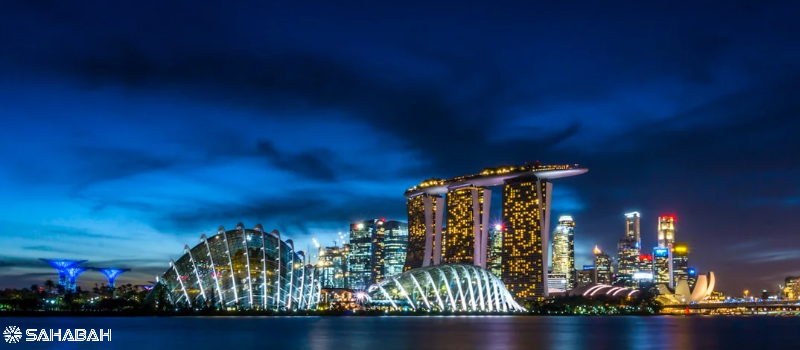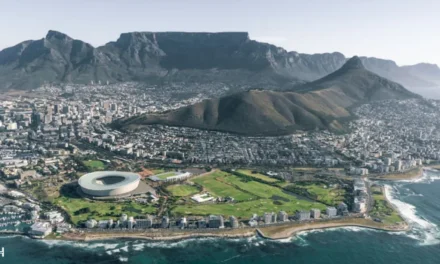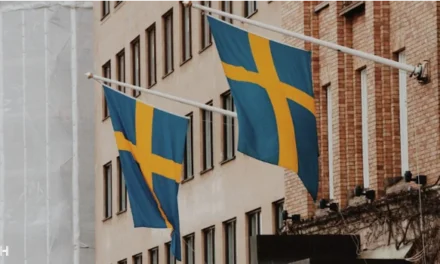As a small city-state in Southeast Asia, Singapore has navigated a delicate diplomatic balancing act when it comes to its relationship with Israel. On one hand, Singapore has maintained official diplomatic ties with Israel since shortly after its independence in 1965. On the other, Singapore has also sought to maintain good relations with its Muslim-majority neighbors, Malaysia and Indonesia, as well as the broader Arab world.
This complex dynamic has shaped Singapore’s approach to the Israeli-Palestinian conflict over the decades. While Singapore has generally maintained a neutral stance, it has also sought to play a constructive role in the region, engaging with both Israel and the Palestinian Authority.
Singapore’s Stance on the Israeli-Palestinian Conflict
Singapore’s official position on the Israeli-Palestinian conflict is one of neutrality. The city-state has consistently called for a peaceful resolution to the conflict based on a two-state solution, with both Israel and a future independent Palestinian state living side by side in peace and security.
This stance was reiterated by Singapore’s Minister for Foreign Affairs, Dr. Vivian Balakrishnan, during the 2021 Israel-Gaza war. In a social media post, Dr. Balakrishnan stated that “Singapore will continue to be friends with both Israel and the Palestinians, and to engage them constructively to promote a just, durable and comprehensive peace in the Middle East.”
The History of Singapore-Israel Relations
Singapore’s relationship with Israel dates back to the early days of the city-state’s independence. In 1965, just months after Singapore separated from Malaysia, it became one of the first countries in Southeast Asia to establish diplomatic relations with Israel.
Over the decades, the two countries have developed a strong partnership, particularly in the areas of defense, technology, and trade. Singapore has viewed Israel as a valuable strategic partner, while Israel has seen Singapore as an important hub for its economic and diplomatic engagement in Asia.
Singapore’s Balancing Act
Despite its close ties with Israel, Singapore has also sought to maintain good relations with its Muslim-majority neighbors, Malaysia and Indonesia, as well as the broader Arab world. This has required a delicate balancing act, as Singapore has had to navigate the sensitivities surrounding the Israeli-Palestinian conflict.
Singapore’s approach has been to maintain a neutral stance, while engaging constructively with both sides. This has involved calling for a peaceful resolution to the conflict, providing humanitarian aid to the Palestinians, and maintaining diplomatic ties with both Israel and the Palestinian Authority.
The Economic and Strategic Importance of the Singapore-Israel Relationship
Trade and Investment Ties
Singapore and Israel have developed strong economic ties over the years. Singapore is a major hub for Israeli companies looking to expand into the Southeast Asian market, while Israeli technology and innovation have also found a receptive audience in the city-state.
Key areas of cooperation include cybersecurity, fintech, agritech, and water management. Prominent Singaporean investments in Israel include Temasek’s stake in Israeli cybersecurity firm Sygnia, while Israeli companies like Watergen and Waze have established a presence in Singapore.
Defense and Security Cooperation
The defense partnership between Singapore and Israel is another important aspect of their relationship. The two countries have engaged in joint military exercises and technology sharing, with Singapore viewing Israel’s defense capabilities as a valuable asset.
This defense cooperation has strategic significance for both nations. For Singapore, it helps bolster the city-state’s military capabilities and regional influence. For Israel, it provides an important ally in Asia and a gateway to the broader Southeast Asian market.
Innovation and Technology Collaboration
Singapore and Israel share a strong focus on innovation and technology, making them natural partners in this domain. The two countries have collaborated on various initiatives, including the establishment of the Singapore-Israel Industrial R&D Foundation, which supports joint research and development projects.
This collaboration has yielded tangible results, with Singaporean and Israeli companies working together on cutting-edge technologies in areas like fintech, cybersecurity, and smart city solutions. The exchange of knowledge and expertise has been mutually beneficial for both countries.
Domestic Considerations and Public Sentiment
Singapore’s Multiracial and Multireligious Society
Singapore’s diverse, multiracial and multireligious society is an important factor in the city-state’s approach to the Israeli-Palestinian conflict. As a country with a significant Muslim population, Singapore has had to navigate the sensitivities surrounding the conflict, particularly in relation to its neighbors, Malaysia and Indonesia.
This has required a delicate balancing act, as Singapore has sought to maintain religious harmony and avoid inflaming tensions within its own society. The government has emphasized the importance of maintaining neutrality and engaging constructively with both sides of the conflict.
Balancing Interests and Maintaining Neutrality
Maintaining a neutral stance on the Israeli-Palestinian conflict has been a constant challenge for Singapore, as it has had to balance the interests of various stakeholders, both domestic and international.
On one hand, Singapore has sought to maintain good relations with Israel, a valuable strategic partner. On the other, it has also needed to consider the sentiments of its Muslim-majority neighbors and the broader Arab world. This has required Singapore to employ various strategies, such as providing humanitarian aid to the Palestinians while also engaging with Israel.
The Future of Singapore-Israel Relations
Emerging Areas of Cooperation
As Singapore and Israel continue to deepen their relationship, new areas of cooperation are emerging. One such area is the digital economy, where the two countries are exploring opportunities for collaboration in fintech, cybersecurity, and other cutting-edge technologies.
Singapore’s position as a regional hub and its strong regulatory environment make it an attractive destination for Israeli companies looking to expand into Asia. Similarly, Singapore’s businesses and startups are increasingly looking to Israel for innovative solutions and partnerships.
Navigating Regional Dynamics
The future of the Singapore-Israel relationship will also be shaped by the broader regional dynamics in the Middle East. As the geopolitical landscape continues to evolve, Singapore will need to carefully navigate its relationships with both Israel and its Arab neighbors, ensuring that it maintains its neutral stance and constructive role in the region.
This will require Singapore to continue its delicate balancing act, leveraging its diplomatic skills and strategic partnerships to promote peace and stability in the Middle East. By doing so, Singapore can continue to play a unique and valuable role in the region, while also strengthening its own position as a global hub and a trusted partner for both Israel and the Arab world.
As a small city-state in Southeast Asia, Singapore has navigated a delicate diplomatic balancing act when it comes to its relationship with Israel. On one hand, Singapore has maintained official diplomatic ties with Israel since shortly after its independence in 1965. On the other, Singapore has also sought to maintain good relations with its Muslim-majority neighbors, Malaysia and Indonesia, as well as the broader Arab world.
This complex dynamic has shaped Singapore’s approach to the Israeli-Palestinian conflict over the decades. While Singapore has generally maintained a neutral stance, it has also sought to play a constructive role in the region, engaging with both Israel and the Palestinian Authority.
Singapore’s Stance on the Israeli-Palestinian Conflict
Singapore’s official position on the Israeli-Palestinian conflict is one of neutrality. The city-state has consistently called for a peaceful resolution to the conflict based on a two-state solution, with both Israel and a future independent Palestinian state living side by side in peace and security.
This stance was reiterated by Singapore’s Minister for Foreign Affairs, Dr. Vivian Balakrishnan, during the 2021 Israel-Gaza war. In a social media post, Dr. Balakrishnan stated that “Singapore will continue to be friends with both Israel and the Palestinians, and to engage them constructively to promote a just, durable and comprehensive peace in the Middle East.”
The History of Singapore-Israel Relations
Singapore’s relationship with Israel dates back to the early days of the city-state’s independence. In 1965, just months after Singapore separated from Malaysia, it became one of the first countries in Southeast Asia to establish diplomatic relations with Israel.
Over the decades, the two countries have developed a strong partnership, particularly in the areas of defense, technology, and trade. Singapore has viewed Israel as a valuable strategic partner, while Israel has seen Singapore as an important hub for its economic and diplomatic engagement in Asia.
Singapore’s Balancing Act
Despite its close ties with Israel, Singapore has also sought to maintain good relations with its Muslim-majority neighbors, Malaysia and Indonesia, as well as the broader Arab world. This has required a delicate balancing act, as Singapore has had to navigate the sensitivities surrounding the Israeli-Palestinian conflict.
Singapore’s approach has been to maintain a neutral stance, while engaging constructively with both sides. This has involved calling for a peaceful resolution to the conflict, providing humanitarian aid to the Palestinians, and maintaining diplomatic ties with both Israel and the Palestinian Authority.
The Economic and Strategic Importance of the Singapore-Israel Relationship
Trade and Investment Ties
Singapore and Israel have developed strong economic ties over the years. Singapore is a major hub for Israeli companies looking to expand into the Southeast Asian market, while Israeli technology and innovation have also found a receptive audience in the city-state.
Key areas of cooperation include cybersecurity, fintech, agritech, and water management. Prominent Singaporean investments in Israel include Temasek’s stake in Israeli cybersecurity firm Sygnia, while Israeli companies like Watergen and Waze have established a presence in Singapore.
Defense and Security Cooperation
The defense partnership between Singapore and Israel is another important aspect of their relationship. The two countries have engaged in joint military exercises and technology sharing, with Singapore viewing Israel’s defense capabilities as a valuable asset.
This defense cooperation has strategic significance for both nations. For Singapore, it helps bolster the city-state’s military capabilities and regional influence. For Israel, it provides an important ally in Asia and a gateway to the broader Southeast Asian market.
Innovation and Technology Collaboration
Singapore and Israel share a strong focus on innovation and technology, making them natural partners in this domain. The two countries have collaborated on various initiatives, including the establishment of the Singapore-Israel Industrial R&D Foundation, which supports joint research and development projects.
This collaboration has yielded tangible results, with Singaporean and Israeli companies working together on cutting-edge technologies in areas like fintech, cybersecurity, and smart city solutions. The exchange of knowledge and expertise has been mutually beneficial for both countries.
Domestic Considerations and Public Sentiment
Singapore’s Multiracial and Multireligious Society
Singapore’s diverse, multiracial and multireligious society is an important factor in the city-state’s approach to the Israeli-Palestinian conflict. As a country with a significant Muslim population, Singapore has had to navigate the sensitivities surrounding the conflict, particularly in relation to its neighbors, Malaysia and Indonesia.
This has required a delicate balancing act, as Singapore has sought to maintain religious harmony and avoid inflaming tensions within its own society. The government has emphasized the importance of maintaining neutrality and engaging constructively with both sides of the conflict.
Balancing Interests and Maintaining Neutrality
Maintaining a neutral stance on the Israeli-Palestinian conflict has been a constant challenge for Singapore, as it has had to balance the interests of various stakeholders, both domestic and international.
On one hand, Singapore has sought to maintain good relations with Israel, a valuable strategic partner. On the other, it has also needed to consider the sentiments of its Muslim-majority neighbors and the broader Arab world. This has required Singapore to employ various strategies, such as providing humanitarian aid to the Palestinians while also engaging with Israel.
The Future of Singapore-Israel Relations
Emerging Areas of Cooperation
As Singapore and Israel continue to deepen their relationship, new areas of cooperation are emerging. One such area is the digital economy, where the two countries are exploring opportunities for collaboration in fintech, cybersecurity, and other cutting-edge technologies.
Singapore’s position as a regional hub and its strong regulatory environment make it an attractive destination for Israeli companies looking to expand into Asia. Similarly, Singapore’s businesses and startups are increasingly looking to Israel for innovative solutions and partnerships.
Navigating Regional Dynamics
The future of the Singapore-Israel relationship will also be shaped by the broader regional dynamics in the Middle East. As the geopolitical landscape continues to evolve, Singapore will need to carefully navigate its relationships with both Israel and its Arab neighbors, ensuring that it maintains its neutral stance and constructive role in the region.
This will require Singapore to continue its delicate balancing act, leveraging its diplomatic skills and strategic partnerships to promote peace and stability in the Middle East. By doing so, Singapore can continue to play a unique and valuable role in the region, while also strengthening its own position as a global hub and a trusted partner for both Israel and the Arab world.
FAQ: Does Singapore support Israel?
Singapore has maintained a relatively neutral stance on the Israel-Gaza conflict, focusing on humanitarian concerns and advocating for peaceful resolutions.
What is the position of Singapore regarding the Israel-Gaza war?
Singapore has consistently called for a ceasefire and for both parties to engage in dialogue to resolve the conflict peacefully.
How does the humanitarian situation in Gaza impact Singaporeans?
The humanitarian situation in Gaza has prompted concerns within Singapore, leading to calls for humanitarian aid and efforts to alleviate the suffering of civilians.
Has there been any official visit to Israel by Singaporean leaders?
While there have been no official visits by Singaporean leaders to Israel, there have been engagements at other levels to maintain diplomatic relations.
What is the stance of Singapore on the actions of Israel’s military?
Singapore has urged all parties to exercise restraint and avoid actions that escalate tensions, including condemning any attacks on civilians.
Are there any specific areas of cooperation between Singapore and Israel?
Singapore and Israel have collaborated in various fields such as defense, technology, and innovation, fostering a strong relationship between the two countries.
Does Sg Support Israel?
Singapore has consistently supported the two-state solution, believing in the right of both Israelis and Palestinians to live in their own independent states. The government has also called for the respect of international law and humanitarian considerations in resolving the conflict.
How does the Singaporean government address concerns related to the conflict between Israel and Palestine?
The Singaporean government often emphasizes the need for a peaceful resolution to the conflict, promoting dialogue and diplomacy to achieve lasting stability in the region.





